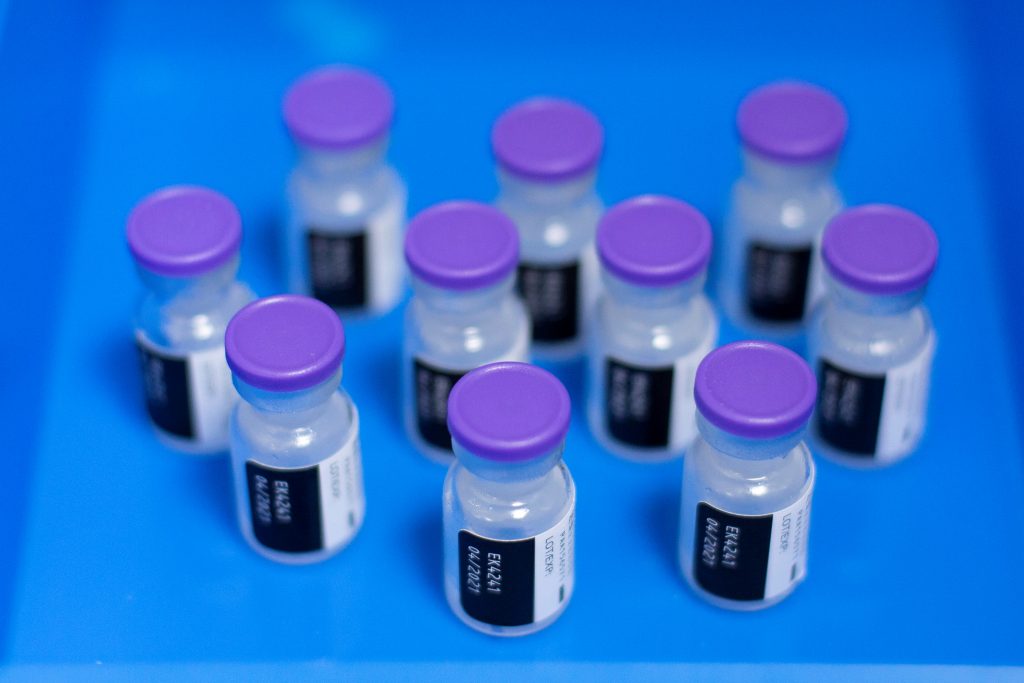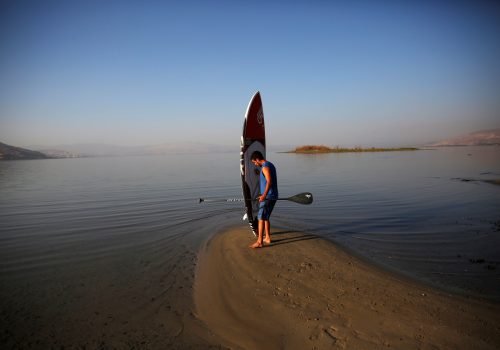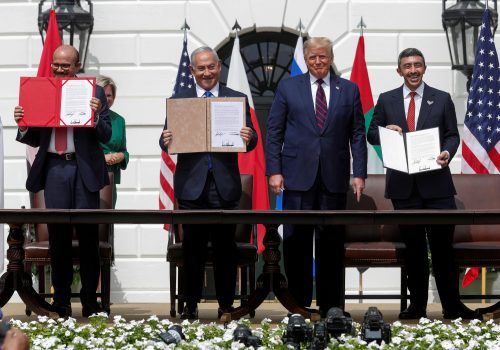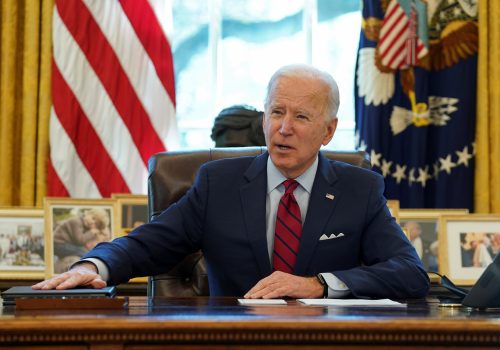Israel, UAE leap ahead in vaccination drive against coronavirus
As every nation in the world races to inoculate its people against the deadly coronavirus, Israel and the United Arab Emirates (UAE) have jumped out front. The efficient manner in which they have acquired and administered the vaccines contrasts with what has been described as a bumbling process in the United States and some of Europe’s most advanced economies.
While both countries are comparatively small—with populations of roughly 9 million—their enthusiasm in securing supplies and giving their citizens a new feeling of protection from the yearlong pandemic may be instructive. On the other hand, the contact tracing operations conducted in cooperation with their intelligence agencies would be seen as gross invasions of privacy in other parts of the world. Additionally, despite fines reaching $150 for going without a mask in Israel—and $800 in the UAE—laxity in social distancing has allowed COVID-19 to run out of control, sending infection and death rates soaring in both countries.
In Israel, January was the deadliest month since the pandemic was first recognized, accounting for a third of the 4,738 who have died from COVID-19, according to government data. In the UAE, coronavirus cases have tripled over the past two weeks to 3,500 a day with 850 dead. Worldwide, the coronavirus has killed 2.2 million.
It’s striking that concern over the pandemic was among the elements that led the UAE to break with other Arab nations last year and sign the Abraham Accords, establishing open diplomatic relations with Israel. Emirati investors have plowed millions of dollars into Israeli medical research while Israel obtained critical supplies of protective gear from the UAE. Israel and the Gulf state, however, are getting the bulk of their supply from different sources. Pfizer, which developed its vaccine with German partner BioNTech, is the primary supplier for Israel. The UAE and Bahrain got most of their initial doses from China’s Sinopharm.
According to records compiled by Oxford University’s Our World in Data project, vaccination drives in Israel and the UAE are by far the fastest in the world. By the end of January, 35 percent of Israel’s population had received at least one dose, followed by the UAE at 31 percent. The United Kingdom (UK) comes in third place at 13 percent and Bahrain is fourth with 10 percent. In fifth, is the US at 7.6 percent. Germany and France sit far lower at 2.2 percent.
Medical authorities in both Israel and the UAE attribute their success to the early priority they assigned to battling COVID-19 and obtaining adequate supplies of the vaccine. The efficiency of their centralized health care systems and emphasis on quickly disseminating information about the availability of the vaccine also played important roles. In Israel, the government will soon offer a “green ticket” that gives those vaccinated more freedom of movement, according to Dr. Nachman Ash, director of the Israeli health ministry’s task force combating the coronavirus. Gradually, it may be used to allow admission to cultural and sporting events based on proof of inoculation. “We are creating expectations that people will earn something,” Dr. Ash told me. “They want to get vaccinated.”
Prime Minister Benjamin Netanyahu has made the vaccine roll-out a central theme in his reelection campaign, frequently visiting clinics for photo opportunities. Others say his taking credit is overblown and attribute Israel’s success to the efficiency of its four main health maintenance organizations (HMOs), which administer the vaccine.
Netanyahu said the breakthrough in Israel’s early acquisition of millions of doses of the Pfizer vaccine was his offer to give the world’s second-biggest pharmaceutical company access to detailed computerized medical data compiled by the HMOs. “Israel could turn out to be a world laboratory for herd immunity or something approaching herd immunity very quickly,” he said in a January 27 online address to the annual World Economic Forum in Davos, Switzerland. “We didn’t quibble about the price.”
According to data from Israel’s Maccabi health service, Pfizer’s vaccine has shown 92 percent effectiveness. While the New York-based company’s clinical testing indicated the vaccine was 95 percent effective against the coronavirus, Israel’s lower figures were within the expected standard deviation.
Although Israel’s vaccination drive earned plaudits from around the world, it has been criticized for leaving out Palestinians, who number more than 4 million in the West Bank and Gaza Strip. A United Nations report says Israel carries responsibility under laws governing military occupation in the Fourth Geneva Convention. Israel disputes its designation as an occupying power and asserts that the 1993 Oslo peace accords specifically say that the semi-autonomous Palestinian Authority (PA) is responsible for vaccinations.
In late January, Israel agreed to transfer 5,000 doses of the Pfizer vaccine to Palestinian health care workers. The PA is negotiating with a variety of sources, including Russia and UN agencies, to obtain vaccines. On a broader level, the World Health Organization issued a plea for the world’s wealthiest countries to ensure that poorer nations can also vaccinate their populations in a timely manner. Failure to do so would represent a “catastrophic moral failure,” Director-General Tedros Adhanom Ghebreyesus said.
With all the hoopla over the UAE’s rapprochement with Israel, some friction was generated by remarks made by Israel’s chief epidemiologist, Dr. Sharon Alroy-Preis. Pointing to the flood of Israelis who visited the Emirates on direct flights inaugurated in December, she noted that many contracted the virus while visiting. “More Israelis died in two weeks of peace with Dubai than in 70 years of war with Dubai,” Alroy-Preis said, according to Israel’s Channel 13 television and the Axios news service. After a protest from the UAE, Israel apologized for what was called “an unsuccessful joke” and said that it doesn’t hold the Gulf country responsible.
In response to the rising infection rates, Israel has shut down all incoming and outgoing passenger flights at Ben-Gurion International Airport until at least February 7. The UAE has temporarily suspended flights to and from the UK because of the more contagious British variant of COVID-19 and requires all air travellers to present a negative test for the virus.
Jonathan H. Ferziger is a non-resident senior fellow at the Atlantic Council and a former Middle East correspondent for Bloomberg News.
Related event
Related content
Image: A woman (R) receives a vaccine against the novel coronavirus in Jerusalem on Jan. 5, 2021. Israel has vaccinated about 1,850,000 people, roughly one-fifth of its population, as of Jan. 12, the fastest vaccination pace in the world. (Kyodo)



